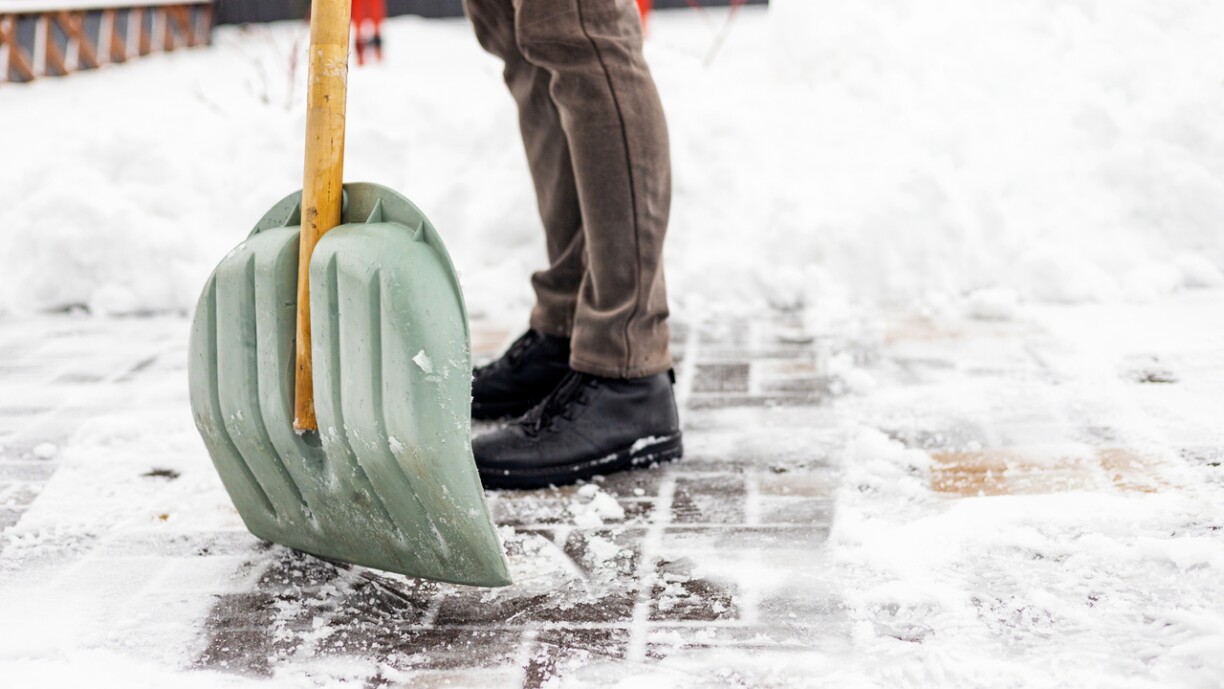
While the winter landscape may be picturesque, the reality of slippery pavements necessitates proactive measures such as shovelling and gritting. The issue becomes crucial when considering potential liabilities in the event of injuries resulting from falls. Before we go on, it is important to note that every municipality has its own regulations on this matter.
In Luxembourg City, the obligation to clear pavements falls upon residents and businesses for the areas in front of their houses or buildings. This responsibility extends beyond snow to include ice and even autumn leaves.
Should pavements be obstructed by snow or black ice, residents are required to promptly shovel and grit the pavement to ensure pedestrian safety. Furthermore, residents are accountable for maintaining clear access to manholes, ensuring unobstructed drainage.
The same rules apply to residential buildings. In this case, internal regulations often apply, or the building administration engages an external company. If you are not sure about the situation within your building, you should definitely enquire about this.
For buildings used for commercial or mixed purposes, such as offices and flats, the responsibility typically rests with the occupant of the ground floor or an external company engaged for this purpose.
The responsibility for pavements in front of buildings used by public authorities or companies lies with the party responsible for services.
For unoccupied buildings or undeveloped properties, the responsibility for pavements falls on the owner. Even if no pavement exists along the property, the path connecting pavements must be cleared or gritted.
Owners without pavements along their buildings are required to clear a 1-metre-wide strip along the entire length.
The municipality of Luxembourg City also emphasises on its website that pouring water on pavements or roads is strictly prohibited.
Individuals with disabilities or those over the age of 65, living alone, can seek assistance from Luxembourg City’s hygiene service, subject to certain conditions.
In addition to pavements, areas at front doors or near rubbish bins must also be kept clear.
As our colleagues from RTL.lu were told by a lawyer upon enquiry, individuals remain responsible for the pavement in front of their doors, even when away or on holiday. The recommended approach is to seek assistance from neighbours or family members to ensure regular clearing. However, if you were not prepared and someone gets hurt, this does not necessarily mean that you are at fault. Pedestrians also bear a certain responsibility and must adapt to inclement conditions by wearing appropriate shoes or adjusting their pace. In the end, a judge will ultimately decide, if litigation should arise, whether it was possible to keep the pavement clear.
Residents should be aware that liability insurance covers instances where pavements are not cleared while at home. However, fines may be imposed if a judge determines that the resident could have prevented an accident.
For pavements not adjacent to houses, as already mentioned, property owners along these stretches are responsible for ensuring safe passage for pedestrians.
However, the obligation to keep the pavement in front of your home clean does not mean that you have to get up at night to shovel. It is recommended to clear the pavement before heading to work and, if it snows again during the day, upon returning home.